Uncategorized
-
 Science & Society
Science & SocietyBias in a common health care algorithm disproportionately hurts black patients
A machine-learning program that uses past medical costs to identify patients for extra care favors white patients over black patients, a study finds.
By Sujata Gupta -
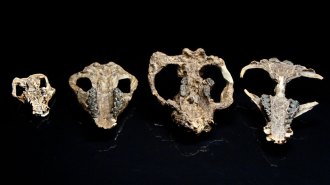 Life
LifeRemarkable fossils capture mammals’ recovery after the dino-killing asteroid
A fossil-rich site in Colorado is revealing how mammals rebounded and flourished after an asteroid strike 66 million years ago.
-
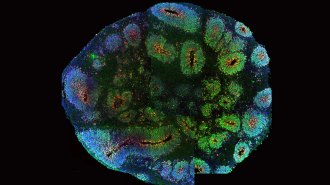 Neuroscience
NeuroscienceLab-grown organoids are more stressed-out than actual brain cells
Compared with real brain tissue, organoids show big differences.
-
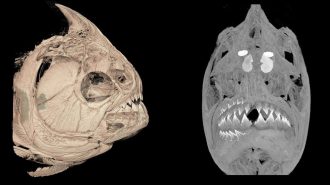 Life
LifePiranhas and their plant-eating relatives, pacus, replace rows of teeth all at once
Piranhas and pacus both lose and replace all teeth on one side of their mouths in one go, which may help to distribute wear and tear.
-
 Space
SpaceStrontium is the first heavy element detected from a neutron star merger
The discovery of strontium created inside a neutron star smashup gives the clearest picture yet of what goes on inside this chaotic environment.
-
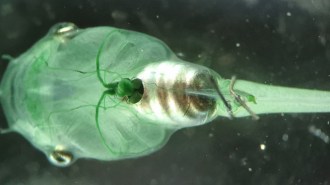 Health & Medicine
Health & MedicineAlgae inside blood vessels could act as oxygen factories
Two types of light-responsive algae make oxygen inside tadpoles’ blood vessels.
-
 Quantum Physics
Quantum PhysicsGoogle officially lays claim to quantum supremacy
The quantum computer Sycamore reportedly performed a calculation that even the most powerful supercomputers available can’t reproduce.
-
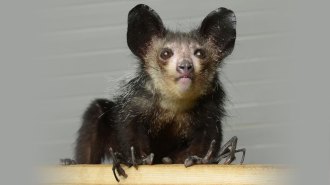 Life
LifeAye-ayes just got weirder with the discovery of a tiny, sixth ‘finger’
Aye-ayes have a sixth “finger,” or pseudothumb, that may compensate for other, overspecialized fingers by helping the lemurs grip things.
By Sofie Bates -
 Health & Medicine
Health & MedicineProzac proves no better than a placebo in treating kids with autism
In a small clinical trial, drugs called selective serotonin reuptake inhibitors didn’t ease obsessive-compulsive symptoms in children with autism.
-
 Neuroscience
NeuroscienceLight from outside the brain can turn on nerve cells in monkey brains
An extra-sensitive light-responsive molecule allowed nerve cells to be switched on or off with dim light.
-
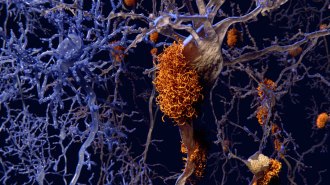 Neuroscience
NeuroscienceAlzheimer’s may scramble metabolism’s connection to sleep
Mice designed to have brain changes that mimic Alzheimer’s disease have altered reactions to blood sugar changes.
-
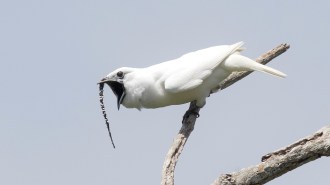 Animals
AnimalsWhite bellbirds have the loudest known mating call of any bird
White bellbirds have the loudest mating call, according to scientists who compared the songs of bellbirds and screaming pihas in the Brazilian Amazon.
By Sofie Bates